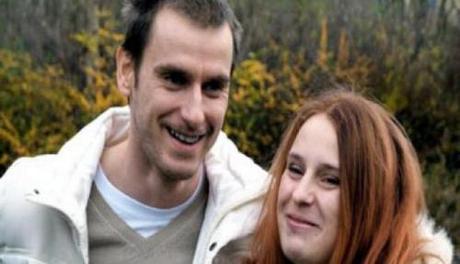We really must be living in the end of days.
The German Ethics Council (Deutscher Ethikrat) is an independent body of 26 academics and “persons of repute” specializing in scientific, medical, theological, ethical, social, economic and legal concerns, which is charged by the 2007 Ethics Council Act to advise the German Bundestag (national parliament) and the Federal Government on questions of ethics, society, science, medicine and law.
Lizzie Dearden reports for the UK’s The Independent that Germany’s national ethics council has called for the decriminalization and legalization of incest between siblings, after examining the case of a man, Patrick Stuebing, who had four children with his sister, Susan Karolewski. The two were not brought up together.

Patrick Stuebing and Susan Karolewski
Sexual relations between siblings or between parents and their children are forbidden under section 173 of the German criminal code. Offenders can face years in prison.
But on Sept. 24, 2014, by a vote of 14 to 9, the German Ethics Council recommended section 173 be repealed, arguing that the risk of disability in children conceived by incestuous couples is not enough to warrant the law. The chairman of the council, Christiane Woopen, was among the 14 members who had voted in favor of repeal.
Members of the Ethics Council who objected to decriminalizing incest argued that it would weaken “ethically significant” family values that contribute towards personal development.
In a statement outlining its recommendations, the Ethics Council said the law against incest “put couples in a tragic situation”:
“Incest between siblings appears to be very rare in Western societies according to the available data but those affected describe how difficult their situation is in light of the threat of punishment. They feel their fundamental freedoms have been violated and are forced into secrecy or to deny their love. The Ethics Council has been told of cases where half-siblings did not grow up together and have only met in their adult lives.
The majority of the German Ethics Council is of the opinion that it is not appropriate for a criminal law to preserve a social taboo. In the case of consensual incest among adult siblings, neither the fear of negative consequences for the family, nor the possibility of the birth of children from such incestuous relationships can justify a criminal prohibition. The fundamental right of adult siblings to sexual self-determination has more weight in such cases than the abstract protection of the family.”
In the case of Patrick Stuebing, he was adopted at a young age and traced his birth family in his early 20s. He and his sister Susan Karolewski, who were not brought up together, met for the first time when they were aged 24 and 16 respectively. Stuebing was convicted of incest in 2008 and spent three years in prison, failing an appeal to the Federal Constitutional Court in 2008 and to the European Court of Human Rights over his rights to a family life in 2012. Karolewski was allowed to keep custody of their youngest child but the other three were taken into care. Two are disabled, although it is not known whether incest is the cause.
A spokeswoman for German Chancellor Angela Merkel’s Christian Democratic Union party, Elisabeth Winkelmeier-Becker, responded to the Ethics Council’s vote saying that the abolition of the law against incest would give out the wrong signal because “Abolishing criminal punishment against incestuous actions within a family would go completely against protecting the undisturbed development of children.”
The Ethics Council’s recommendation only covered incest between siblings and members did not recommend decriminalizing sex between parents and children.
At least not yet.
H/t FOTM’s josephbc69
See also:
- Australian judge says incest may no longer be a taboo
- Hollywood director says incest is fine
- Columbia U. prof who pled guilty to incest compares it to same-sex marriage
- Harvard University will have an Incest-fest
- Yale U. hosts workshop teaching “sensitivity” to bestiality & incest
- This is why we have the incest taboo: 4-generations incest family discovered in Australia
- Siblings arrested for incest; sodomy in church parking lot
~Eowyn

